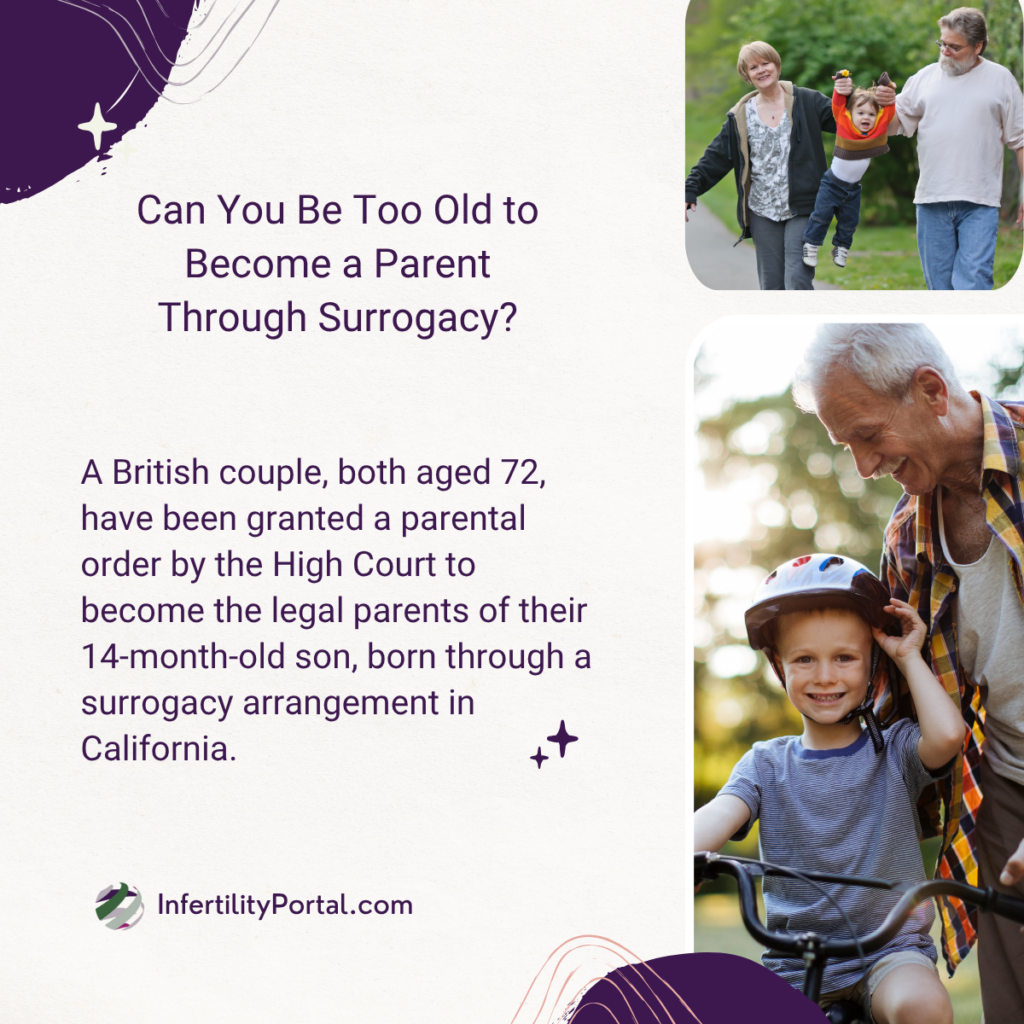.
United Kingdom Court Grants Parental Order to Seventy-Two-Year-Old Couple: Should Age Limit Surrogacy?
In a recent and noteworthy decision, the High Court in the United Kingdom granted a parental order to a couple, both aged seventy-two, for their 14-month-old son who was born through surrogacy in California. The child was conceived using the father’s sperm and a donor egg, following the devastating loss of the couple’s adult child to cancer. In seeking a new sense of purpose, they turned to international surrogacy.
Despite the fact that the intended parents will be eighty-nine years old when their child turns eighteen, the judge ruled in their favor. The court emphasized that legal permanence and family stability were in the best interests of the child. The couple had made thoughtful plans, including appointing younger guardians and securing the support of a full-time nanny to assist with daily care.
Raising New Questions in Surrogacy Ethics and Law
This case presents a meaningful opportunity to reflect on issues that are becoming increasingly relevant in the modern surrogacy landscape:
Should there be an upper age limit for individuals seeking to become parents through surrogacy or assisted reproduction?
Is it legal or ethical for surrogacy agencies to enforce age restrictions?
Should legislators more clearly define guidelines regarding age and intended parenthood?
Notably, there are currently no legal age restrictions for people who become parents through natural conception. Many individuals become parents well into their later years without any legal limitations or requirements.
Therefore, is it fair to apply a separate standard when parenthood is achieved through surrogacy or in vitro fertilization?
Consent, Planning, and the Realities of Later-Life Parenting
Supporters of age-inclusive surrogacy argue that, as long as all parties involved — the surrogate, the agency, and the medical team — are informed and in agreement, transparency and consent should be sufficient. They believe parenting readiness should be evaluated based on preparation, commitment, and long-term planning, not simply on age.
Others raise valid concerns about whether older intended parents can meet a child’s physical, emotional, and practical needs as the child grows. Critics question whether it is responsible to bring a child into a situation where their parent or parents may not be present for most of their adult life.
In this particular case, the couple’s detailed preparation, including legal guardianship plans and the involvement of a full-time caregiver, reassured the court that the child would be well supported.
A Conversation That Needs Broader Engagement
This ruling does not offer an easy solution, but it highlights the need for thoughtful and inclusive discussion about age, ethics, and access to assisted reproduction. As surrogacy becomes increasingly accessible across borders, the legal and moral frameworks around it must adapt accordingly.
Rather than relying on rigid rules, perhaps the best path forward is a careful, case-by-case evaluation that centers on the welfare of the child while respecting the reproductive rights of individuals.
This moment invites a wider and more compassionate dialogue. As our understanding of family continues to evolve, we must ensure our policies and practices evolve with it—grounded in fairness, responsibility, and care for all involved.


